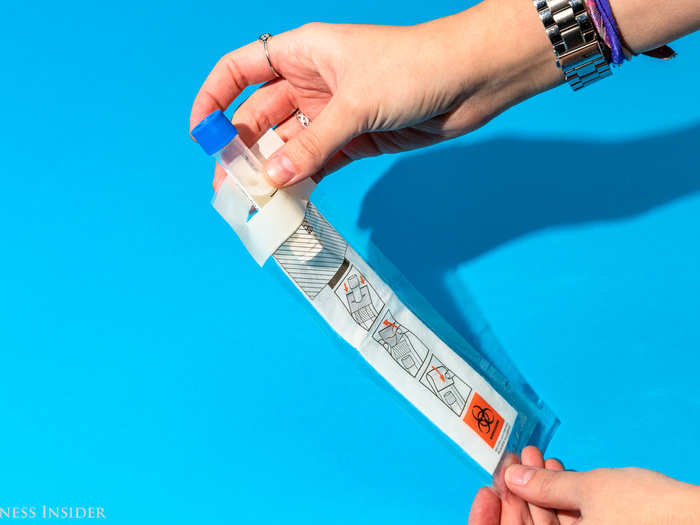
You carry two copies of all of your genes — one from each of your parents. 23andMe's latest test is designed to tell you if your chances of developing a disease are higher than those of the average person. To do that, it scans your DNA for genetic mutations, or tweaks in your genetic material, that have been linked with specific diseases. If it finds one, it adds that information to your profile.
Before you freak out, you should know that having a mutation does not necessarily mean you will develop that illness. It simply means you're more likely to get it than someone without that genetic tweak. In other words, "you could have the mutation and not get it, or you could not have the mutation and get it," says Klitzman.

Genetics play a big role in whether we develop certain diseases, but so do our environment and our behavior. Everything from what we eat to where we're raised and how often we exercise can affect our risk of developing diseases like cancer and obesity, for example.
"Research suggests that some 50% of all depression cases are linked with genetics," Klitzman says. "The other 50% is environment. So if you're just looking at the genetic factors, you're missing everything else."

Some of our traits, like the color of our eyes, are connected to one or two genes. But this isn't the case with psychiatric characteristics like intelligence or illnesses like depression. Identifying the genetic links to those illnesses is far more complex, so don't expect your test to tell you anything about your risk of mental illness.
"For things like intelligence there's easily 100 different genes involved," Klitzman says. "So the notion that you're going to test for a few of them and that's going to be predictive, that's not reflecting the complexity of genetics and of the mind and brain."

The vast majority of personal genetics tests that are available today use something called SNPs, or single nucleotide polymorphisms, to test for genetic variants linked with certain traits. They're the most common type of genetic variation among people, but they represent only a tiny fraction of all of our DNA, meaning that they might not be testing some parts of our genes where there's valuable information.
"Up until a few years ago, we thought 98% of the genome was junk DNA, which turned out not to be quite true," says Klitzman.

As far as take-home genetics tests go, there are literally thousands of options. But there's still no comprehensive system to tell us which ones are legitimate. So when it comes to finding out what the average person can glean from one of these tests — it's probably a lot less than we thought.
"For the vast majority of people who take personalized genetics tests, their results will have no predictive value," says Klitzman.
 Hardik's T20 WC ticket hinges on his IPL form: Sources
Hardik's T20 WC ticket hinges on his IPL form: Sources
 India's gold demand up 8% in Jan-Mar to 136.6 tonne despite high rate
India's gold demand up 8% in Jan-Mar to 136.6 tonne despite high rate
 Mahindra XUV 3XO compact SUV launched in India starting at ₹7.49 lakh
Mahindra XUV 3XO compact SUV launched in India starting at ₹7.49 lakh

Copyright © 2024. Times Internet Limited. All rights reserved.For reprint rights. Times Syndication Service.